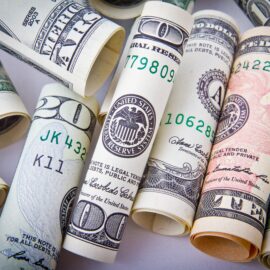

This article is an excerpt from the Shortform book guide to "The Wealth of Nations" by Adam Smith. Shortform has the world's best summaries and analyses of books you should be reading.
Like this article? Sign up for a free trial here.
According to Adam Smith, how are humans different from dogs? What’s the real price of something? How did Smith regard taxation?
Adam Smith, an 18th-century Scottish philosopher, is widely considered one of the founding fathers of capitalism. Published in 1776, his book The Wealth of Nations makes the case for free markets and individual self-interest as the best ways to grow a nation’s economy.
Continue reading for several quotes from The Wealth of Nations that give you a good idea of the book’s ideas.
Quotes From The Wealth of Nations
Smith’s seminal work laid much of the groundwork for the field of economics. We’ve selected five quotes from The Wealth of Nations and provided them along with some context and explanation.
“Man is an animal that makes bargains. No other animal does this; no dog exchanges bones with another.”
In a capitalist society, everyone’s a merchant. Smith contends that you cannot meet your needs without purchasing goods produced by others. Therefore, everyone must exchange value for value, wealth for wealth. Workers sell their labor in exchange for wages just as merchants sell goods in exchange for profits. But what are we really exchanging, and how do we do so? In this section, we will cover Smith’s theories on what markets exchange and how they’re able to facilitate this exchange.
“The real price of everything, what everything really costs to the man who wants to acquire it, is the toil and trouble of acquiring it.”
Markets exchange the value of labor. Smith explains that the value of every good is derived from the work people put into producing it. For example, when you buy a block of cheese at a grocery store, you are paying for the work of the farmers who raised and milked the cows, the farmers who raised feed for the cows, the dairy processors who turned the milk into cheese, the truck drivers who shipped the cheese to your grocery store, the store clerks who keep the shop open, the workers in the energy sector providing electricity for every step of the process, and so on.
Therefore, when you trade your labor for wages and then spend those wages on goods, you’re really exchanging your labor for the labor of others. You gain wealth by contributing labor to society, and your wealth gives you the power to command labor from others.
“Civil government, so far as it is instituted for the security of property, is in reality instituted for the defence of the rich against the poor, or of those who have some property against those who have none at all.”
Smith recommends that governments should collect taxes and spend public money only if it’s on something that’s important for society as a whole and can’t be handled better by the free market. Justice is one expenditure that meets these criteria. He believes that governments have an obligation to provide justice and enforce the laws. Smith cites two benefits of having a judiciary funded by the government.
- The wealthier a society becomes, the higher the incentives to commit property crimes like theft and fraud become because the potential gains of such crimes are so much higher. Therefore, wealthier societies need strong courts and legal systems.
- Laws ought to be impartial. If judges were paid by the parties involved in the trial, they may be tempted to judge in favor of those that could afford to pay them the most.
“There is no art which one government sooner learns of another than that of draining money from the pockets of the people.”
Smith views taxes largely as a necessary evil. He remarks that all taxation takes value out of the hands of private investors, whose self-interest encourages them to invest it in the industries that contribute most effectively to national growth. However, he recognizes that it may be impossible to fund important public works without taxes. Therefore, much of his discussion of tax policy is directed toward finding the least disruptive system of taxation.
“It is not from the benevolence of the butcher, the brewer, or the baker that we expect our dinner, but from their regard to their own self-interest. We address ourselves not to their humanity but to their self-love, and never talk to them of our own necessities, but of their advantages.”
Throughout his book, Smith argues that the individual pursuit of self-interest maximizes a nation’s capacity to produce wealth. He states that workers produce the goods that increase a nation’s wealth out of a desire for personal gain. Because they can make the most money for themselves by creating things that others want to use and buy, workers will naturally be drawn to create the goods that are most useful and desirable to others. Furthermore, self-interest will also direct workers to produce more goods at a higher quality because, the more and better goods they make, the more they earn selling them at market.

———End of Preview———
Like what you just read? Read the rest of the world's best book summary and analysis of Adam Smith's "The Wealth of Nations" at Shortform.
Here's what you'll find in our full The Wealth of Nations summary:
- The 1776 classic that set the groundwork for the field of economics
- Adam Smith's ideas about markets, international trade, and government
- How governments can accidentally encourage smuggling






